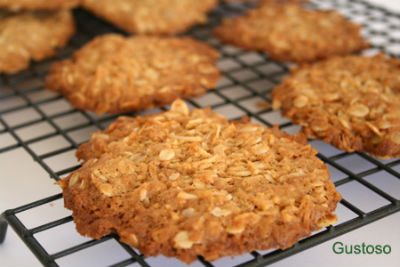Do you eat cookies or biscuits?
Recently Cari Hunter, author of the excellent thrillers Desolation Point, Tumbledown and Snowbound (Bold Stroke Books) put out a call on Facebook. It was, she said, a “flash poll for international eaters of stuff and readers of lesfic”.
She wants to know whether: “any of these biscuits are familiar to you: custard creams, bourbons, shortbread fingers, ginger-nuts, malted milk or Digestives?”
There’s a cultural conundrum for starters: to speakers of English-English – such as Brits and Australians – a “biscuit” is a sweet thing to be crunched with a cuppa or a coffee. To Americans, a biscuit is what the English-English call a scone. Americans eat cookies, the English-English do not, although chocolate chip cookies have made a significant incursion.
Hunter is English, she lives in the north-west and when not racing around the countryside in an ambulance saving people, can be found tramping the hills of the Peak District (look it up).
Nevertheless, while Snowbound is set in a small village that you might find in the rugged region where she lives, Desolation Point is set in the Cascades. And Tumbledown is cheekily set in Maine where, she freely admits, she has never set foot! But her new novel, No Good Reason, due in June, is located back in her beloved Peak District. And she’s wondering how local she can make it before international readers switch off.
Hunter is aware that a lot of her readers are American and her question about the sweet treats we like to snack on is an interesting one. In Australia, for instance, there is tangible resistance to the creeping use of “cookie” – outrageous when in conjunction with “Anzac”. The Anzac biscuit is a scrumptious thing to chew on in the chilly morning after the Anzac Day dawn service. It’s mainly rolled oats, butter, desiccated coconut, golden syrup, flour and brown sugar. Family arguments break out over whether they should be chewy or crunchy, but no one ever disputes how delicious they are – and that they are definitely biscuits!
Hunter’s question – about the brands best known in England – is interesting in that it shows how little England and Australia have diverged over the years, but how different is the US taste in … um … cookies. For instance as well as the world-conquering chocolate chip there are Oreos, Twinkies, S’mores, Snickerdoodles – the names are edible in themselves! Then, of course, there’s Elvis’s death wish: deep fried peanut butter and banana sandwiches, which isn’t a cookie strictly speaking, but was allegedly the King’s last snack before his over-taxed heart gave up on him, and uniquely American.
Hunter says, of her culinary concerns, “I think it’s a fear of chucking a reader out of a scene by throwing something at them that’s so completely alien it makes them stop and go ‘huh?’ I’ll probably swap custard creams for shortbread. But I am sad Americans don’t have Battenberg cake, though, I mean look how pretty it is!”
Battenberg cake: www.bbc.co.uk
And so it is, even if you don’t like marzipan, and whether you care or not that it might have been named in honour of Queen Victoria’s husband. But that’s the thing: if you don’t explore, you might as well stay home and guzzle more S’mores. One of the unexpected pleasures in reading American lesbian fiction is coming across foods I’ve never heard of and doing a quick search mid-chapter. So: “red velvet cake” – who knew. And I now know what “grits” look like, although I wish I didn’t. And I’ve figured out the difference between fries, home fries and chips, also that Australia and England have gone their separate ways over chips and crisps (although the chip butty will probably cause world peace, in the end).
Not yet tried a Po Boy, although I’ve read about them and jambalaya was a must for a first trip to New Orleans (in a book, of course). Same goes for Maine Lobster Roll – as delicious as it sounds and Crawfish Etoufee likewise. Get reading, get eating and get exploring. Bon ton roulet!
